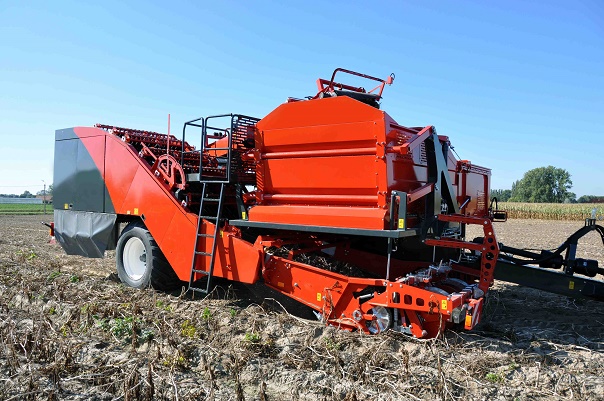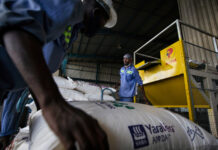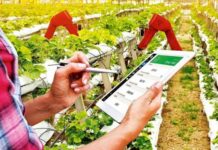According to Tinus Prinsloo, CEO of AFGRI, the Dewulf, Standen and IMAC ranges of machinery were the subject of considerable interest at NAMPO, so much so that the equipment subsequently went on display again at a farmer’s day held in Warden, also in the Free State, on the 30th of May. Here, the recent wet weather assisted in showing what the machinery is truly capable of, as the damp soil was perfect for demonstration purposes.
“The event was extremely well attended thanks to our display at NAMPO, where the interest was high – clearly word has spread about these very effective machines,” said a delighted Prinsloo.
The equipment, which includes a top of the range potato harvester, the four-row self-propelled Dewulf Kwatro, owes its popularity to constant innovation on behalf of the manufacturers, durability and the comparatively low cost of replacement parts. Potato farming is also becoming more popular as South African farmers seek to diversify crops to mitigate risk.
“The equipment is designed in such a way that the parts most subject to wear and tear are first, easy to replace, and second, can be replaced by relatively generic components, which makes it more affordable for the farmer to maintain,” Prinsloo went on to explain.
Another benefit is that AFGRI Equipment, which offers the entire range of specialised potato machinery, including the design and supply of pack house equipment, has also catered for every segment of the market in its import of the various brands – Dewulf, Standen and IMAC – thus allowing farmers to select the equipment most suited to their needs.
Prinsloo concludes that the Standen Unistar Soil Conditioner is a very popular piece of equipment, ensuring soil is in peak condition for planting. “This machine – which is no doubt a ‘best in class’ – has the capability of completely removing stones from the farmer’s field, which is essential in South Africa, as most potatoes here are sold to the fresh produce market. Farmers can’t afford to have their potatoes bruised or otherwise damaged in the harvesting process. Of course, the wear on harvesters is also then limited due to the lifting action happening in soft, stone-free, friable soil – a big plus for the farmer, given that the equipment comes at a substantial purchase price.”









